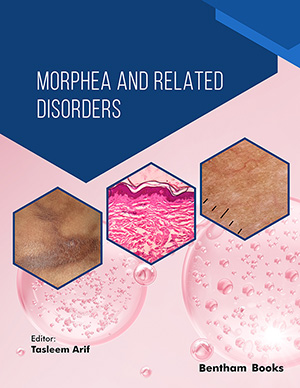Abstract
Background: A potential limelight is flashed on the Gut Microbiota (GM) in the human body, which confers additional psychological as well as physiological attributes to health. Other than just occupying a wide portion of the gastrointestinal tract, it also plays numerous functions in the systems of the body. Gut Microbiota is largely responsible for a considerably vast array of conditions such as obesity, diabetes ,other metabolic disorders, and cardiovascular disorders. Strategies targeting the gut microbiota have been proposed as a promising approach for the management of these disorders.
Objective: This review aims to summarize the different strategies targeting the gut microbiota for the management of several disorders and to highlight the importance of a sustainable approach.
Methods: A comprehensive literature search was conducted using various databases between 2008 and 2022 that focused on the use of prebiotics, probiotics, synbiotics, postbiotics, fecal microbiota transplantation, dietary interventions, and antibiotics.
Results: Different strategies targeting the gut microbiota for the management of several disorders were identified, including probiotics, prebiotics, synbiotics, postbiotics, fecal microbiota transplantation, and dietary interventions. Modification in diet and lifestyle, allowing favorable microbiota growth in the stomach, intake of prebiotics and probiotics, and fecal microbiota transplantation are amongst the widely accepted recent approaches allowing the application of GM in the field of treatment.
Conclusion: Although considerable steps in enhancing and understanding the mechanism of treatment with the help of gut microbiota are under progress, much diversified and elaborate research must be conducted in order to enhance and implement the use of GM with high effectiveness.
Keywords: Gut, microbiota, treatment, disorder, dysbiosis, sustainable approach, probiotics, prebiotics.
[http://dx.doi.org/10.1136/bmj.k2179] [PMID: 29899036]
[http://dx.doi.org/10.3748/wjg.v21.i29.8787] [PMID: 26269668]
[http://dx.doi.org/10.1097/MOG.0000000000000139] [PMID: 25394236]
[http://dx.doi.org/10.1002/9781118409855]
[http://dx.doi.org/10.1128/mBio.00893-14] [PMID: 24939885]
[http://dx.doi.org/10.4330/wjc.v12.i4.110] [PMID: 32431782]
[PMID: 25830558]
[http://dx.doi.org/10.3748/wjg.15.169] [PMID: 19132766]
[http://dx.doi.org/10.1002/wsbm.19] [PMID: 20836011]
[http://dx.doi.org/10.3389/fcimb.2021.625913] [PMID: 33816335]
[http://dx.doi.org/10.3390/microorganisms9112281] [PMID: 34835406]
[http://dx.doi.org/10.3389/fimmu.2022.785644] [PMID: 35237258]
[http://dx.doi.org/10.5217/ir.2016.14.2.127] [PMID: 27175113]
[http://dx.doi.org/10.3389/fcimb.2017.00381] [PMID: 28884091]
[http://dx.doi.org/10.3389/fcimb.2016.00015] [PMID: 26925392]
[http://dx.doi.org/10.1002/biot.202000013] [PMID: 32663372]
[http://dx.doi.org/10.1038/s41367-019-0011-7] [PMID: 31391921]
[http://dx.doi.org/10.3390/foods11162438] [PMID: 36010438]
[http://dx.doi.org/10.1017/S0022029909990173] [PMID: 19825213]
[http://dx.doi.org/10.3390/nu14030668] [PMID: 35277027]
[http://dx.doi.org/10.2174/1567205019666211222115142] [PMID: 34951365]
[http://dx.doi.org/10.1093/nutrit/nuz080] [PMID: 31769847]
[http://dx.doi.org/10.1126/science.147.3659.747] [PMID: 14242024]
[http://dx.doi.org/10.1038/sj.npp.1301571] [PMID: 17882234]
[http://dx.doi.org/10.3389/fneur.2018.00662] [PMID: 30158897]
[http://dx.doi.org/10.1111/j.1528-1167.2010.02871.x]
[http://dx.doi.org/10.3389/fpsyt.2017.00043] [PMID: 28373848]
[http://dx.doi.org/10.3389/fimmu.2022.937555] [PMID: 35812394]
[http://dx.doi.org/10.2147/CIA.S106284] [PMID: 27956826]
[http://dx.doi.org/10.1016/j.foodres.2022.111067] [PMID: 35400445]
[http://dx.doi.org/10.3389/fcimb.2021.619354] [PMID: 33763383]
[http://dx.doi.org/10.1016/j.clnu.2016.06.020] [PMID: 27406858]
[http://dx.doi.org/10.1523/JNEUROSCI.4373-15.2016] [PMID: 26961958]
[PMID: 26328004]
[http://dx.doi.org/10.3390/ijms16047493] [PMID: 25849657]
[http://dx.doi.org/10.1053/j.gastro.2017.01.009]
[http://dx.doi.org/10.1053/j.gastro.2017.08.022]



























